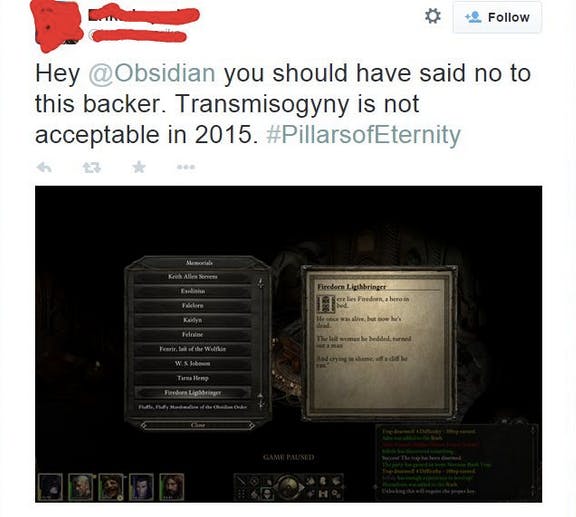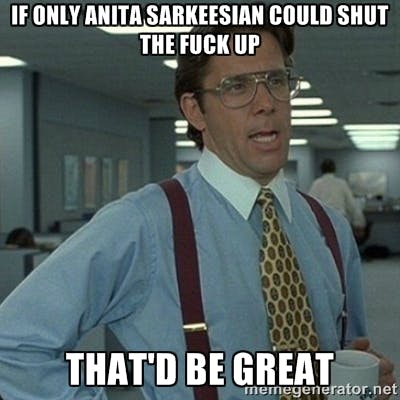One of the ongoing missions of my writing is to make men better. Self-improvement is one of the keys for men who want to have greater social success—whether it be sexual, romantic or otherwise. Unfortunately, the idea of “what it means to be a man” tends to get in the way. As more and more men confront the fact that the white, heterosexual male is no longer the automatic default, more and more people cling to a fetishized ideal of “manhood” predicated on supposedly “natural” aspects of manliness that men should supposedly aspire to have. But these “ideal, manly” traits actively harm men and women—a form of toxic masculinity.
Of course, just saying the words “toxic masculinity” is enough to prompt some people to immediately become defensive and aggressive. There’s a certain segment who will resist the idea that masculinity needs to be examined and refined; they leap to the accusation that “toxic masculinity” means maleness and masculine-identified traits are inherently bad and undesirable. But this form of masculinity isn’t “natural.” It’s a script, a narrative based on believing that the most negative stereotypes associated with maleness are inherent within the gender.
I’ve written before about how toxic masculinity hurts men and women. Now it’s time to look at ways to reclaim “being a man” from the toxic stew that people insist we should soak in.
The Fight to Leave The Performance of Masculinity Behind
Toxic masculinity is an inherently narrow and restrictive band of behavior, belief, and appearance. It reduces the idea of “what is a man” to someone who’s emotionally repressed, thuggishly violent, sexually aggressive almost to the point of mindlessness and inherently self-centered, whose status as a man is based almost entirely on the size of his penis. It’s the natural endpoint of “I’ve got mine, f*** you,” where everything is about the performance rather than the reality.
This form of masculinity isn’t “natural.” It’s a script.
Even expressions of theoretical selflessness—the idea of “a real man provides,” for example—are at their core aimed at maintaining their masculine credentials rather than caring for the wellbeing of one’s spouse and family. If their true concern is providing for their family’s well-being, it shouldn’t matter whether the man or the woman is the primary breadwinner; yet should a man concede that his wife contributes more to the family, he’s emasculated…often literally.
That’s not a joke. A Washington University study found that in marriages where women earn more money than their husbands, the husbands were more likely to experience insomnia, depression, and erectile dysfunction.
https://www.youtube.com/watch?v=kORINpVUEtE
But the strictures of toxic masculinity isolate and alienate those who don’t live up to those restrictive standards and makes them fair game for others. Not following the narrative of traditional masculinity marks you as being the odd man out—if you’re a “man” at all. Someone who doesn’t meticulously conform to the stereotypical masculine gender expression is someone to be pitied at best, to be “corrected” at worst. People who are invested in “biotruths”—a form of naturalistic fallacy that assumes that “biological traits” are inherently good and cannot be criticized—will actively push back against people who challenge those ideals.
This, in and of itself, is evidence of just how fragile toxic masculinity is. It only can work as the “standard” as long as everyone agrees to play by the same rules. People who diverge from its dictates threaten to undermine the “truth” in “biotruth.” Trans people challenge the idea that being a man is inherent in one’s genitalia or having a Y chromosome. Feminine acting or presenting gay men challenge male sexual roles. Passive, submissive or emotionally expressive men put paid to the idea that men must be aggressive and stoic.
This is evidence of just how fragile toxic masculinity is.
And because they challenge the status-quo, they must be forced back into compliance, whether through mockery and derision or through outright violence.
This is why gender policing is an inherent part of toxic masculinity. After all, one of the ways that men can prove their masculine bona fides is to punish someone else for digressing from the standard. This is why Red Pillers, Men’s Rights Advocates, and other fellow travelers love to throw around accusations like “white knight,” “beta male,” or “cuck.” It’s an attempt to reaffirm the natural desirability of the status-quo by questioning the motivations of the challenger.
https://www.youtube.com/watch?v=aSnprpUwP4M
To those invested in maintaining it, toxic masculinity is by definition the natural and desirable state. Clearly the only reason why somebody would challenge it is because they’re angling for female approval and thus, be rewarded with sex they couldn’t get otherwise. Accusations of white-knighting also serve to derail the discussion, changing the terms of the debate from challenging toxic masculinity to having to justify one’s behavior and “prove” they’re not just in it for the sex.
It’s a rhetorical trap. Taking the bait and arguing about whether you’re a white knight or not inherently acknowledges the validity of the accusation, hamstringing the protestor’s argument. Every successful derailment demonstrates a cruel irony: those who have been the most negatively affected by these toxic stereotypes often absorb and lionize those stereotypes themselves and will be the first to defend them.
Gamergate provides an excellent example of men who don’t fit the traditional definitions of “manly”—who by, their own defition, are frequently oppressed and bullied by “manlier” men (jocks, preps, bros, Chads, etc.), yet are as eager to marginalize others by the same dictates. One of the oft-toted reasons why SJW‘s are so unwelcome is because gaming has become a place for men “to be men.” In essence, it’s the only place where they can validate their masculinity which society otherwise denies them.
It’s the only place where they can validate their masculinity which society otherwise denies them.
As a result, they recreate the same system that’s isolated and alienated them and turned their oppressors’ beliefs and tactics into virtues. Men can’t possibly disagree with them unless they’ve been suborned by the sexual wiles of a manipulative woman; trans people are inherently either delusional or actively lying about their gender identity; games shouldn’t have to change from the macho dictates of the FPS shooter or the fighting game because games that aren’t about killing or fucking are “walking simulators” or “SJW pussy bait.” Women are castrating bitches and whores, non-Gamergate-supporting men are cucks and betas, Internet Tough Guys are lionized, and the dictates of the group must be enforced through harassment and violence.
But people are increasingly challenging the status quo. It’s significant that someone like Terry Crews—a man who embodies the “traditional” masculine ideal—speaks openly about the absurdity of gender roles and the need to abandon toxic masculinity. He is someone who benefits from the current status-quo, yet recognizes the damage that it does. Much as how male allies frequently command more attention and respect from other men when talking about feminism—even above women who say the exact same things—having someone unquestionably “manly” gives the argument greater emotional heft.
However, at the same time, it’s easy for Crews to push against toxic masculinity. Nobody who looks at him—a 6? tall former football star whose muscles have veiny six-packs of their own—can accuse him of trying to sell out his gender for sexual favors. He’s in a better position to ignore the gender police’s attempts at correction. It’s much harder for the fat, pasty nerd to stand up and reject toxic masculinity; he’s often absorbed the same lessons and (understandably) fears the corrective actions of those who will try to put him back in his place.
But that is precisely why they need to make a stand, even in small ways; every person who challenges and rejects toxic masculinity’s ubiquitousness and desirability is another crack in the already brittle armor.
So how can men do this? Well, for starters:
1) Quit Treating Women Like The Enemy
The first step towards rejecting toxic masculinity is simply to quit treating women as though they were our mortal enemies. A key component of toxic masculinity is defining “man” in opposition to “woman.” When women are the literal antithesis of men, everything that diverges from “manly” becomes suspicious at best and dangerous at worst. It takes the idea of a man who has traits that aren’t coded as “male”—not being sexually aggressive, being passive rather than violent, and expressing his emotions or even simply not following the cultural narrative of what a “man” does with his life—and turns them into signs that he’s been corrupted, emasculated. Acting like “a bitch.” Being “a pussy.”
In other words: acting like a woman.
A key component of toxic masculinity is defining “man” in opposition to “woman.”
Of course, one of the first things to be blamed for any digression from toxic masculinity is the increasing influence and acceptance of feminism, along with acknowledgement of concepts like rape culture and, well, toxic masculinity. Many men will blame feminist firebrands like Andrea Dworkin for instilling a fear of women, rather than processing the ownership of their own fears and desires. The movie Fight Club codifies the ennui and disconnect that men feel, not as men having been sold a load of bullshit about what it means to be a man, but that—as Dan Olson puts it in his excellent break-down—it was never delivered in the form that they expected.
And who is to blame for this? Women. Tyler Durden—who is unquestionably the representation of the toxic masculine ideal—says it outright: “We are a generation of men raised by women.”
This codification of women-as-opponents falls into sex as well. While men are sexual satyrs, forever horny and looking to fuck, women must, ergo, be the opposite. Women can’t want sex and instead use the promise of sex as a transaction—meet the market price and be granted access into the sacred vault. This ends up trapping women in a no-win situation: A woman who doesn’t give it up is a bitch and a prude, while a woman who gives in “too easily” is a slut. Men are in the position of demanding that women let themselves be used and then insult them for allowing it in the first place.
Men are in the position of demanding that women let themselves be used and then insult them for allowing it in the first place.
Perversely, the idea that women like sex, and they just aren’t interested in being slut-shamed gets men angry. Much like when a man violates gender norms, a woman who likes sex for sex’s sake challenges the status-quo of toxic masculinity and must be punished.
Moreover, toxic masculinity only allows men to interact with women in one of two ways: the mother or the whore. Women are the nurturers—the ones who are able to feel and express the emotions men cannot—or the providers of sex. Any relationship outside of these can’t exist because of these definitional issues. Men and women can’t possibly be friends because men want to have sex with them. This intrinsic conflict means that men are cut off from the only acceptable outlet for their emotions—women’s role as sex-provider and men’s eagerness to have sex supercede emotional vulnerability.
One of the most perversely fascinating aspects of toxic masculinity is how often women get blamed for systems, standards and beliefs that men put into place. The idea that only certain men—the six-foot tall alpha male with high social status, high-testosterone, a perfect body, and a massive bank account—get women is a blatant fallacy of composition created by men. The idea that men who don’t behave according to macho dictates are undesirable to women—also perpetuated by men.
It becomes an almost absurd level of projection. We’ve built and enforced this system for so long we’ve come to take it as unvarnished truth handed down on carved tablets and blame women—who have minimal autonomy or authority under this system—for creating it and keeping it going. It’s an amazing paradox: It’s both an evolutionary truth and a cruel system enforced by women.
Part of why men resent women is that deep down, we envy them.
Ironically, part of why men resent women is that deep down, we envy them—or at least the view we’re encouraged to have of them. They are, to paraphrase Fight Club again, free in all the ways we aren’t. Women (men are taught to believe) don’t get rejected for dates, and women are free to express themselves; these abilities, combined with increasing social equality that allows them to step outside of traditional feminine roles, lead men to believe that they’ve somehow been surpassed by women and have lost power and influence in their own spheres as a result.
Challenging these beliefs is the first step in detoxifying what it means to be a man. Refusing to accept the idea that women are men’s natural opposites and opponents helps free men. Being less macho is held up as a sin, but refusing to accept these definitions as limitations allows men to step outside the confining restrictions of toxic masculinity and be free.
2) Stop Believing the Worst About Men
One of the more bewildering aspects of toxic masculinity is that while it demonizes women and supposed feminine traits, it is equally as dismissive and insulting to men. Traditional, toxic masculinity holds a deep and abiding disrespect for men, assuming that we are, at our core, animals at best. We are beholden to our most damaging traits, our insatiable sexuality, our poor impulse control, and need for violence. Intellect, passivity, emotional comprehension, compassion, and sensitivity are all feminine coded traits and, thus, suspect.
In the ideals of toxic masculinity, men are emotionally stunted brutes who can’t control themselves, and this is a good thing. You see this repeated over and over again in the many myths—what some call “dude social fallacies”—about men:
- Boys will be boys
- All men want sex at all costs
- Men can’t resist sex
- Men who don’t get sex are failures
- Men only do things for women in order to get sex
- Men only get into relationships for sex. If they could get sex elsewhere for free, they would
- “What did you think would happen?”
- Men can’t read signals
- Men can’t handle their emotions, so women must do it for them
- Men are slobs who’d live in squalor if women didn’t force them not to
- Sex inevitably gets in the way of male-female relationships
- The most violent are the most manly
- Someone who loses a fight is a lesser man
- Aggression is a virtue
- The appropriate reaction to a challenge is violence
- Men are impulsive oafs who don’t think long term
Apparently, we think left to their own devices, men would regress back to being cavemen within hours.
Keep in mind: These are supposed to be virtues. They’re those “biotruths” and, thus, not only immune from criticism but impossible to change. Men, according to other men, are all latent rapists; women who have been sexually assaulted are continually asked: “Well. what did you think was going to happen when you were alone with him?” Yet at the same time, we’re insulted when women assume that we present a threat. It’s a way of absolving ourselves of blame: Men can’t control their boners, but women should give us all the benefit of the doubt because you don’t know what he meant when he invited you back to his room “for coffee” at 4am.
Apparently, we think left to their own devices, men would regress back to being cavemen within hours.
The idea of men as immature boors who’re incapable of maintaining their own lives without a fuckable mommy figure is likewise perpetuated by men. The “fat doofus with the mature wife” stereotype that’s repeated over and over again in television and film comes from a medium controlled and run by men. The few women show-runners—Shonda Rhimes, Jenni Konner, Lena Dunham, Jenni Urmann, Jill Soloway, etc.—aren’t interested in another Honeymooners-derived sitcom or Chuck Lorre comedy full of idiot pussyhounds who bumble through their own existence. We are complicit in perpetuating the stereotypes about our own behavior until the rest of the world lines up in agreement.
That belief in the worst of men carries over into male friendships. Men already are caught in the paradox of only being allowed to express themselves emotionally to women, yet can’t form emotional bonds because of sex. However, they are equally prohibited to opening up to other men. Intimacy between men is by definition suspect; any form of closeness that doesn’t adhere to a strict, ritualized form of machismo becomes a sign of homosexuality.
Even in more progressive men, intimate relationships between men still have to conform to an overt “but in a manly way” codification of behavior. “Bromance” and “no homo” are used as unironic signifiers that both men are indeed heterosexual, thank you very much. Of course, since all men want sex, emotional intimacy between men without some macho disqualification is seen as a precursor to gay seduction. Your friend doesn’t want to open up to you, he wants to fuck you.
And any hint of homosexuality is to be abhorred at all costs, lest it cost you your manhood, too.
This fragility of masculinity, the ease with which it can be taken from you, forms the core of so much pain and hatred. When the computer role-playing game Pillars of Eternity was released, it contained user-submitted content—memorials from users who backed the game on Kickstarter. It was quickly discovered that one of the memorials was a poem about a ladies’ man who slept with a trans woman; upon realizing the truth, he was so distraught that he immediately flung himself off a cliff and died.
The “joke,” of course, is that this is an entirely reasonable thing to do; discovering that your sexual partner is trans is so horrible that death is preferable to living with the knowledge that your penis might have touched a man. The supporters who decried removing the joke complained about “oversensitivity” (again, a female-coded trait) because what’s the harm, it’s just a joke…right, bro? But in supporting the “humor” of the piece, it gives tacit approval to the implicit horror of sleeping with a trans person.
This fragility of masculinity, the ease with which it can be taken from you, forms the core of so much pain and hatred.
While the “joke” of the poem is that it ends in the man committing suicide, in reality, trans men and women are at insanely high risk for assault and murder at the hands of cisgender men. In fact, trans panic is a legal defense against murder in 49 out of 50 states in the U.S. Once again: It’s men trapping themselves within such a narrow and flimsy definition of masculinity that any transgression must be corrected through violence.
When we accept these stereotypes of masculine behavior as not only true but inevitable, we’re proving what low regard we hold for ourselves. We cut ourselves off from relationships and emotional support that we desperately need. By letting toxic masculinity describe men, we make ourselves complicit in the brutalization of men and women, condoning hate and violence as simply part and parcel of our gender. We make it impossible for anyone, male or female to trust us. If we want to be better than that, then we need to stop believing the worst of ourselves.
3) Don’t Let “Asshole” Be the Default State
The challenge of growing past toxic masculinity is the overwhelming belief that shitty behavior is not only acceptable, it’s to be expected. The first answer to women complaining about harassment online is inevitably that they should “grow a thicker skin,” with the (false) implication that men and women suffer harassment and trolling equally. People who challenge shitty behavior are told they’re being whiny professional victims, perpetuators of “outrage culture,” and to shut up and accept things the way they are. The message is all too clear: “This is how things are and you should accept it.”
We are literally told that “being shitty to people” is the default state and that we should conform to this immediately. Trying to challenge the status quo is not only futile but a sign of weakness and immaturity—because being willing to accept shitty behavior from shitty people is somehow a mark of strength instead of simply going along to get along.
The challenge of growing past toxic masculinity is the overwhelming belief that shitty behavior is not only acceptable, it’s to be expected.
It’s important to those who benefit from the status quo to hold forth that change is not just undesirable but impossible. The more that they can convince others that change is unimaginable, then the more people will accept that the current (shitty) state of affairs is natural and right. Dissent isn’t just crushed by punishing those who step out of line; it’s diminished by convincing people that they’re powerless. Better to accept the status quo and conform than to waste your time and energy in a Sisyphean task.
Even people who understand this feel the pressure to believe that improvement isn’t possible. In full honesty, there are points where writing this column leaves me with moments of doubt: Who am I to try to change an existing culture? I’m a loud-mouth with a blog. Wow arrogant am I to assume I have the solution to a problem that’s plagued men for generations?
But that’s why it’s so damn important for people to push back, to challenge the status quo, and to reclaim what it means to be a man from the grips of toxic masculinity. As I said earlier: The system can only continue as long as everyone agrees to the rules. Gender police fight back so fiercely because every challenge to the system undermines its existence. Every voice raised in protest against toxic masculinity makes it give ground. Every person who refuses to accept the worst in ourselves moves us forward.
The defenders of toxic masculinity love to portray those who protest it as being insufficiently manly or thinking that men need to be emasculated. It’s their way of trying to derail the conversation and to force us to defend ourselves while accepting their definition. But it’s not about problems with being sexually forward. It’s not about whether or not a man is aggressive or passive, muscular or not. It’s about the belief that being a man means being poisonous to themselves and to others. It’s about being more than other people’s limitations.
Men—gay and straight, cis and trans, nerdy and athletic, macho and femme—need to push back against the insulting definitions of what it means to be a man. We need to welcome that diversity, that wild and wondrous variety that masculinity encompasses.
By doing so, we free ourselves to be the real men we are meant to be.
Harris O’Malley provides geek dating advice at his blog Paging Dr. NerdLove, as well as writing the occasional guest review for Spill.com and appearing on the podcast The League of Extremely Ordinary Gentlemen. He can be found dispensing snark and advice on Facebook and Twitter.
This article was originally featured on the author’s website and was republished with permission.
Photo via MyLifeInPlastic.Com/Flickr (CC BY 2.0)



